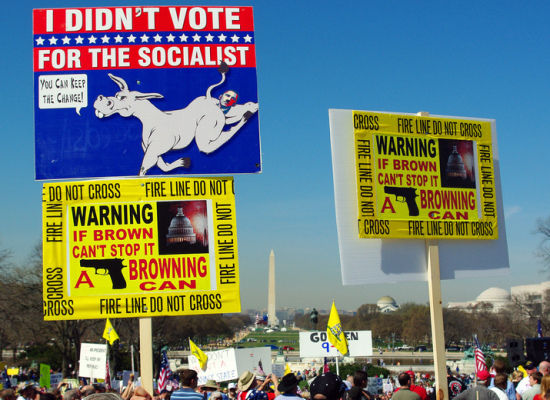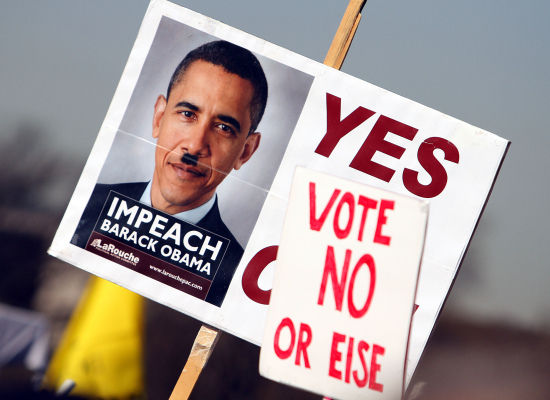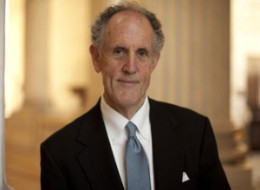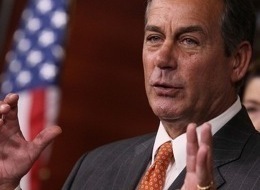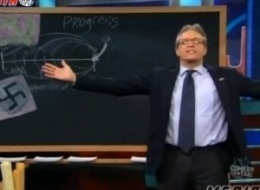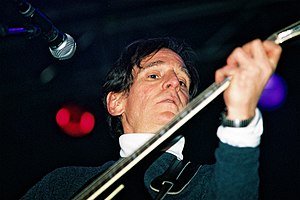Early life and career
Chilton grew up in a musical family; his father, Sidney Chilton, was a jazz musician. A local band recruited the teenager in 1966 as their lead singer after learning of the popularity of his vocal performance at a talent show at Memphis' Central High School; this band was The Devilles, later renamed Box Tops. At a conservative school in a largely conservative city, Alex and his band made a huge impression on the students who attended the talent show. He was different, and his style attractive. The new group recorded with Chips Moman and producer/songwriter Dan PennAmerican Sound Studio and Muscle Shoals' FAME Studios. at
As lead singer for the Box Tops, Chilton enjoyed at the age of 16 a number-one international hit, "The Letter." The Box Tops went on to have several other major chart hits, including "Cry Like a Baby" (1968) and "Soul Deep" (1969). The group's songs were written by Penn, Moman, Spooner Oldham and other top area songwriters, with Chilton occasionally contributing a song. By late 1969, only Chilton and guitarist Gary Talley remained from the original group, and newer additions replaced the members who had departed. The group decided to disband and pursue independent careers in February 1970.
Chilton then began performing as a solo artist, maintaining a working relationship with Penn for demos. During this period he began learning guitar by studying the styles of guitarists like Stax Records great Steve Cropper, recording his own material in 1970 at Ardent Studios with local musicians like producer Terry Manning and drummer Richard Rosebrough, and producing a few local blues-rock acts. His 1970 recordings and productions from that time frame were released years later in the 1980s and 1990s on albums like Lost Decade (New Rose Records) and 1970 (Ardent Records).
1970s career
After a period in New York City, during which Chilton worked on his guitar technique and singing style (some of which was believed to have been influenced by a chance meeting with Roger McGuinn at a friend's apartment in New York, when Chilton was impressed with McGuinn's singing and playing), Chilton returned to Memphis in 1971 and joined the power-pop group Big Star, with Chris Bell, recording at engineer John Fry's Ardent Studios. Chilton and Bell co-wrote "In The Street" for Big Star's first album #1 Record, a track later known as the theme song of That '70s Show.
The group's recordings met little commercial success but established Chilton's reputation as a rock singer and songwriter; later alternative music bands like R.E.M.Radio City, including the recording of "Mod Lang." Rosebrough would occasionally work with Chilton on later recordings, including Big Star's Third album and Chilton's 1975 solo record Bach's Bottom. would praise the group as a major influence. During this period he also occasionally recorded with Rosebrough as a group they called The Dolby Fuckers; some of their studio experimentation was included on Big Star's album
Moving back to New York in 1977, Chilton performed as "Alex Chilton and the Cossacks" with a lineup that included Chris Stamey (later of The dB's) and Richard LloydTelevision at venues like CBGB, releasing an influential solo single, "Bangkok" (b/w a cover of the Seeds' "Can't Seem to Make You Mine"), in 1978. This period learning from the New York CBGB scene marked the beginning of a key change for Chilton's personal musical interests away from multi-layered pop studio recording standards toward a looser, animated punk performance style often recorded in one take and featuring fewer overdubs. There he made the acquaintance of punk band the Cramps. He brought them to Memphis, where he produced the songs that would appear on their Gravest Hits EP and their Songs the Lord Taught Us LP. of
In 1979, Chilton released, in a limited edition of 500 copies, an album called Like Flies on Sherbert, produced by Chilton with Jim Dickinson at Phillips Recording and Ardent Studios, which featured his own interpretations of songs by artists as disparate as the Carter Family, Jimmy C. Newman, Ernest Tubb, and KC and the Sunshine Band, along with several originals. While criticized by some as a druggy mess, this album is considered by many to be a lo-fi masterpiece. Sherbert, which included backing work by Memphis musicians including Rosebrough, Memphis drummer Ross Johnson, and Lisa Aldridge, has since been reissued several times.
Beginning in 1979 Chilton also co-founded, played guitar with, and produced some albums for Tav Falco's Panther Burns, which began as an offbeat rock-and-roll group deconstructing blues, country, and rockabilly music.
1980s onwards
Chilton moved to New Orleans in the early 1980s, while also touring regularly with Panther Burns and occasionally as a solo artist, as documented in his poorly received 1982 solo release Live in London.
After a six month span of working outside music at tree-trimming and dishwashing jobs in New Orleans, he resumed playing with Panther Burns in 1983. His new association with New Orleans jazz musicians (including bassist René Coman) marked a period in which he began playing guitar in a less raucous style and moved toward a cooler, more restrained approach, as heard in Panther Burns' 1984 Sugar Ditch Revisited album, produced by Jim Dickinson.
Immediately upon completing the recording in mid-1984, Chilton returned his focus to his own solo career. He stopped playing regular gigs with Panther Burns and took with him the group's bassist, Coman. Chilton then formed a trio with Coman and Memphis jazz drummer Doug Garrison. The trio immediately began touring intensely and recording at Ardent Studios, releasing in 1985 an EP, Feudalist Tarts, that featured his versions of songs by Carla Thomas, Slim Harpo, and Willie Tee, and releasing in 1986 No Sex. The latter EP contained three originals, including the extended mood piece, "Wild Kingdom," a song highlighting Coman's jazz-oriented, improvisational bass interplay with Chilton.
During this period, in his recordings Chilton began frequently to use a horn section consisting of Memphis veteran jazz performers Fred Ford, Jim Spake, and Nokie Taylor to imbue the soul-oriented pieces among his repertoire with a postmodern, minimalist jazz feel that distinguished his interpretative approach from that of a simple soul revivalist style. Chilton forged a new direction for his solo work, eschewing effects and blending soul, jazz, country, rockabilly and pop. Coman left Chilton's solo trio at the end of 1986 to pursue other projects, forming (with Garrison) The Iguanas, three years later, with other New Orleans musicians; both would record occasionally with Chilton after departing.
Chilton was featured in the song "Alex Chilton" by American rock band The Replacements on their 1987 album Pleased to Meet Me, on which Chilton was a guest musician.
Touring and recording as a solo artist from the late-1980s through the 1990s with bassist Ron Easley and eventually drummer Richard Dworkin, Chilton gained a reputation for his eclectic taste in cover versions, guitar work, and laconic stage presence.
Chilton included on 1987's High Priest a cover of "Raunchy," his instrumental salute to Sun Records guitarist Sid Manker, a friend of his father from whom he'd once taken a guitar lesson; this song was also a standard in his early Panther Burns repertoire. Along with four upbeat originals, High Priest also included other covers like "Nobody's Fool," a song originally written and recorded in 1973 by his old mentor Dan Penn. His EP Black List contained a cover of Ronny & the Daytonas' "Little GTO," along with an original song, "Guantanamerika." He also produced albums by several artists beginning in the 1980s, including the Detroit group The Gories, occasionally producing Panther Burns albums well into the 1990s.
In the 1990s, Chilton recorded an acoustic solo record of jazz standards in New Orleans' Chez Flames studio with producer Keith Keller, entitled "Cliches", and continued with a live CD released in 2004, Live in Anvers.
Since the mid-1990s, he added to his schedule concerts and recordings with the reunited Box Tops and a version of Big Star that included two members of The Posies, Jon Auer and Ken Stringfellow. A new Big Star album, entitled In Space, with songs penned by this lineup, was released September 27, 2005, on Rykodisc.
Chilton was present at his home in New Orleans during Hurricane Katrina and evacuated on September 4, 2005.
Chilton continued to perform live yearly, with sporadic solo, Box Tops and Big Star shows in theatres and at festivals around the world.
Chilton was taken to the hospital in New Orleans on March 17, 2010, complaining of health problems, and died the same day of a suspected heart attack. He is survived by his wife, Laura, son, Timothy, and sister, Cynthia.[1][2]
Discography
Albums
- One Day in New York - (Trio, 1978, reissued 1991 on Art Union Records)
- Like Flies on Sherbert - (Peabody, 1979; Aura, 1980 UK)
- Bach's Bottom - (Line, 1981, remixed & reissued 1993 on Razor & Tie)
- Live in London - (Aura, 1982 UK)
- High Priest - (New Rose/Big Time, 1987; reissued 1994 on Razor & Tie)
- Clichés - (Ardent, 1994)
- A Man Called Destruction - (Ardent, 1995)
- Cubist Blues, with Ben Vaughn and Alan Vega - (Discovery, 1997, reissued by Last Call in 2006 with an extra disc recorded live)
- Loose Shoes and Tight Pussy - (Last Call, 1999)
- Set (Bar/None, 2000) (U.S. release of Loose Shoes LP)
- Live in Anvers - (Last Call, 2004)
Singles and EPs
- Singer Not the Song (EP) - (Ork, 1977)
- "Bangkok" / "Can't Seem to Make You Mine" - (Fun, 1978)
- "Hey Little Child" / "No More the Moon Shines on Lorena" - (Aura 1980 UK)
- Feudalist Tarts (EP) - (New Rose/Big Time, 1985; reissued 1994 on Razor & Tie)
- No Sex (EP) - (New Rose/Big Time, 1986; reissued 1994 on Razor & Tie)
- Black List (EP) - (New Rose, 1989; reissued 1994 on Razor & Tie)
Compilations
- Lost Decade - (Fan Club, 1985)
- Document - (Aura, 1985)
- Stuff - (New Rose, 1987)
- Best of Alex Chilton - (New Rose, 1991)
- 19 Years: A Collection of Alex Chilton - (Rhino, 1991)
- 1970 - (Ardent, 1996)
- Top 30 - (Last Call, 1997)
References
External links
Fess Parker | Fess Parker |
 Parker in 1985 |
| Born | Fess Elisha Parker, Jr. August 16, 1924 |
| Died | March 18, 2010 (aged 85) |
| Occupation | Actor |
| Years active | 1950–1974 |
| Spouse(s) | Marcella Belle Rinehart (m. 1960–2010) «start: (1960)–end+1: (2011)»"Marriage: Marcella Belle Rinehart to Fess Parker" Location: (linkback:http://en.wikipedia.org/wiki/Fess_Parker) |
Fess Elisha Parker, Jr. (August 16, 1924 – March 18, 2010)[1] was an American film and television actor best known for his 1950s portrayals of Davy Crockett for Walt Disney and his late 1960s portrayals of Daniel Boone. [2] He was also known as a wine maker and resort owner-operator.
Early years
Parker was born in Fort Worth, Texas, and grew up on a small farm outside San Angelo.[3] He served in the U.S. Marine Corps at the end of World War II. He joined to become a pilot, but was turned down for being too tall at 6 feet 6 inches (1.98 m) to fill such a position.
After being discharged, he was stabbed in the chin by a drunken driver during a post-collision argument. Parker required many months of rehabilitation, and was unable to participate in sports to the extent he desired.
Parker graduated from the University of Texas on the G.I. Bill in 1950 with a history degree. Still having a year left on his G.I. Bill he then moved to California, where he studied drama at the University of Southern California seeking a master's degree in theater history. However minor acting jobs soon obstructed that objective.[1][4]
Career
Parker began his show-business career in the play Mister Roberts in 1951, although he is credited with the voice of Leslie, the chauffeur, in the 1950 film Harvey.
Parker became a contract player with Warner Brothers appearing in small roles in several films such as Springfield Rifle (1952), Island in the Sky, The Bounty Hunter and Battle Cry. In 1954, he appeared as Grat Dalton in the Jim Davis western anthology Stories of the Century in the episode The Dalton Brothers.
There is an interesting story from Parker himself. When Walt Disney Company was looking for an actor to play Davy Crockett, they originally considered James Arness for the title role. Parker had recently graduated to a contract weekly actor, but listened to his agent, so he appeared instead in a B movie called Them!, that required only one day's work. He had a small scene in the movie, that of a pilot put into an insane asylum after claiming his plane had been downed by giant flying insects. Arness appeared in a larger role in the same film.
It was during a screening of this film that Walt Disney looked past Arness and discovered Parker. Disney was impressed by Parker's portrayal of a man who was unswerving in his belief in what he saw despite the forces of authority against him. Parker was asked to drop by the Disney Studio. When he did, he brought his guitar, met Walt, sang a song, and then said his goodbye. A couple of weeks later he was told that he had been selected over Arness and several other actors considered for the role, including Buddy Ebsen who eventually played Crockett's friend, George Russell.
Disney's portrayal of Crockett in three episodes depicted his exploits as frontiersman, congressman, and tragic hero of the Alamo, in what has been called the first television miniseries though the term had not yet been coined. Davy Crockett was a tremendous hit with children, and led to a merchandising frenzy for coonskin caps and all things Crockett.
For his work with Disney, Parker was honored in December 2004 with his own tribute window on a facade in the Adventureland section of Disneyland.[5]
Parker became a contract star for Disney appearing in many films such as The Great Locomotive Chase, Old Yeller, and Westward Ho, The Wagons! but complained they were all pretty much the same role. Disney refused to loan out Parker for roles outside of that persona, such as The Searchers and Bus Stop.[6]
Parker made guest appearances on many television programs; and composed and sang music. He performed the occasional role of Tom Conrad, editor of the Diablo Courier in the syndicated western series, Annie Oakley (1954-1957), starring Gail Davis, Brad Johnson, and Jimmy Hawkins.[7] In 1962, he starred in the title role of the TV series Mr Smith Goes to Washington and from 1964 to 1970 he starred in the NBC series Daniel Boone, portraying another historic figure of America's frontier days. Turning down the title role of McCloud, Parker retired from the film industry in the 1970s, after a short-lived 1974 sitcom, The Fess Parker Show.
In 2003, Parker received the Texas Cultural Trust's Texas Medal of Arts, established only the year before.[8]
Fess Parker Winery

The Fess Parker Winery in Los Olivos, California. After his acting career, Parker devoted much of his time to operating his Fess Parker Family Winery and Vineyards[9] in Los Olivos, California. The winery is owned and operated by Parker's family, and has produced several different types of award-winning wines.
The Parker operation includes over 1,500 acres (6.1 km2) of vineyards, and a tasting room and visitor center along the Foxen Canyon Wine Trail. In addition to wine, the winery is known for selling coon skin caps and bottle toppers, inspired by Parker's Crockett and Boone characters, and for appearing in the movie Sideways.
Personal life
Parker married Marcella Belle Rinehart on January 18, 1960. They had two children — Fess Elisha III and Ashley Allen Rinehart — along with 11 grandchildren and a great-grandson.[10]
Death
Parker died at age 85, of natural causes according to a spokesperson, [1] at his home in Santa Ynez, California, near the Fess Parker Winery on March 18, 2010.[1]
Filmography
Television
See also
References
- ^ a b c Dan Whitcomb (March 18, 2010) “ "Davy Crockett" Star Fess Parker Dies at 85” ‘’ABC News’’ Accessed March 18, 2010
- ^ Obituary London Guardian, March 19, 2010.
- ^ “Disney Legends Award: Fess Parker-1991” Disney.com
- ^ Dennis McLellan (March 18, 2010) “Fess Parker, who played Davy Crockett and Daniel Boone on TV, dies at 85” Los Angeles Times, Accessed March 18, 2010
- ^ Heather Hust Rivera (December 18th, 2009) "Did You Miss It? Davy Crockett’s Window in Frontierland" Disney Accessed March 18, 2010
- ^ Fess Parker Interview Playset Magazine #34
- ^ "Annie Oakley". tvacres.com. http://www.tvacres.com/west_annie_oakley.htm. Retrieved January 11, 2010.
- ^ Associated Press (7 February 2003). "Talented Texans to be Honored". The Houston Chronicle: pp. 2. http://www.chron.com/CDA/archives/archive.mpl?id=2003_3624907. Retrieved 2008-01-22.
- ^ Official Fess Parker Website fessparker.com
- ^ Official Website Biography Page Accessed March 18, 2010
External links
Merlin Olsen
Merlin Olsen | |
| Born | September 15, 1940 |
| Died | March 11, 2010 (aged 69) |
| Career information |
| Year(s) | 1962–1976 |
| NFL Draft | 1962 / Round: 1 / Pick: 3 |
| AFL Draft | 1962 / Round: 1 / Pick: 2 |
| College | Utah State |
| Professional teams |
| |
| Career stats |
| Games | 208 |
| Sacks | 94 |
| Interceptions | 1 |
| Stats at NFL.com |
| Career highlights and awards |
- 14× Pro Bowl (1962, 1963, 1964, 1965, 1966, 1967, 1968, 1969, 1970, 1971, 1972, 1973, 1974, 1975)
- 6× First-team All-Pro selection (1964, 1966, 1967, 1968, 1969, 1970)
- 3× Second-team All-Pro selection (1965, 1973, 1974)
- NFL 75th Anniversary All-Time Team
- NFL 1970s All-Decade Team
- NFL 1960s All-Decade Team
- 1974 Bert Bell Award (NFL MVP)
- 1968 Pro Bowl MVP
- 1962 NFL Rookie of the Year
- 1961 Outland Trophy
- 2× All-American (1960, 1961)
- St. Louis Rams #74 Retired
|
| |
| |
Merlin Jay Olsen (September 15, 1940 – March 11, 2010)[1] was a former American football player in the National Football League and an actor. He played his entire 15-year career with the Los Angeles Rams and was elected to the Pro Bowl in 14 of those seasons, a current record shared with Bruce Matthews. He is a member of the Pro Football Hall of Fame and the College Football Hall of Fame. As an actor he portrayed the farmer Jonathan Garvey on Little House on the Prairie. After leaving that series, he starred in his own NBC drama, Father Murphy, playing the title role of a traveling priest.
College
Olsen attended Utah State University where he became a member of the Sigma Chiletterman in football as a defensive tackle. In football, as a senior, he was a consensus All-American selection (making the vast majority of All-America teams) and was the winner of the Outland Trophy. After Olsen's junior year of 1960 he was also named All-American by the Football Writers Association of America and Newspaper Enterprise Association. He was also All-Conference in both 1960 and 1961. Olsen and Utah State were in the 1960 Sun Bowl, losing to New Mexico State, 20–13. Led by Olsen, the Aggie defense held the New Mexico State Aggies to just 44 rushing yards on 32 carries.[2] fraternity, and was a three-year
The Aggie defense Olsen anchored as a senior gave up an average of 50.8 rushing yards (which led the nation), 88.6 passing yards, and 139.4 total yards which all still stand as school records for defense. The 1961 Aggie defense gave up an average 7.8 points a game, which is second in team history behind Olsen's 1960 team, which allowed 6.5 points per game.[3] Additionally, the Aggie defense held four opponents to less than 100 total yards. One, the University of Idaho, was held to a school-record 23 total yards, with the Aggies winning 69–0.
The Aggies, not known as a national power football program, finished 10th in both the AP and UPI post-season polls, the only time that has occurred in school history. The Aggies had a combined 18–3–1 record during Olsen's junior and senior seasons under coach John Ralston and were conference champions those two seasons as well.[4]
Awards and honors
Olsen played in the East-West Shrine Game in 1961 and in 2003 was voted to the game's Hall of Fame.[5] He also played in the Hula Bowl after his senior season and was voted MVP of the game.[6]
Olsen is a member of the State of Utah’s Sports Hall of Fame, the Utah State University Sports Hall of Fame and USU’s All-Century Football Team. In 2000, he was selected by Sports Illustrated as one of the State of Utah’s Top 50 Athletes of the Century. He was voted to the All-Academic All-America Hall of Fame in 1988. In 1969, he was voted to the Newspaper Enterprise Association All-Time All-America team with collegiate greats such as Bronco Nagurski, Red Grange, Jim Thorpe, and O. J. Simpson, among others.[7]
In 2008, Olsen was named to the 75th Anniversary All-Sun Bowl Team to commemorate the Sun Bowl Association's Diamond Anniversary.[8]
Utah State University announced the intention to name its football field after Olsen during a ceremony in Logan during halftime of the USU-St. Mary’s basketball game on December 5, 2009.[9] HOF Sculptor Blair Buswell is creating a bronze sculpture that will sit at the entrance to Merlin Olsen Field at Romney Stadium.
Olsen also was a three-time academic All-American at Utah State and graduated summa cum laude in 1962 with a degree in finance.[3]
NFL
Coming out of college, Olsen had offers from both Los Angeles of the NFL and the Denver Broncos of the rival American Football League. He chose the security of the NFL and signed with the Rams. Olsen's first contract was for around $50,000 for two years, plus a signing bonus. It was 1962, and the average football player salary at the time was around $12,000 a year. He was the first USU Aggie to be drafted in the 1st round of the NFL draft.[3]
Olsen played professionally (from 1962 to 1976) for the Los Angeles Rams of the National Football League. A leading defensive star of his era, he missed only two games in his 15-season NFL career. He was named the NFL's Rookie of the Year in 1962 and was First-team All-Pro in 1964, and 1966 through 1970. He was voted Second-team All-Pro in 1965, 1973 and 1974.[10]
Olsen almost ended up on offense, but was later moved to the defensive line after a few experiments in practice. Soon he became part of one of the best front fours in NFL history. Deacon Jones, Rosey Grier, and Lamar Lundy joined Olsen on the defensive line in 1963 that was nicknamed "The Fearsome Foursome".[10] He was named the Associated Press NFL Defensive Player of the Week for week 12 in 1965. Olsen scored his first touchdown in that game.
Throughout the 1960s, this quartet terrorized opposing offenses. Olsen's play helped the Rams to the playoffs in 1967 and 1969. He was voted the club's Outstanding Defensive Lineman from 1967–70 by the Los Angeles Rams Alumni. In week 14, 1967, Olsen and the rest of the Fearsome Foursome were named the AP NFL Defensive Players of the Week for their performance against the Baltimore Colts. In the 1970s, Olsen continued his dominant play at defensive tackle and his eleven sacks in 1972[10] were second on the team. After week 8 in 1972, Olsen was named the Associated Press NFL Defensive Player of the Week for the third time in his career.
The Rams won the NFC West crown in 1973 through 1976 thanks in part to the play of Olsen. They ranked first in the NFL in run defense in 1973 and 1974 and finished second in sacking opposing passers both years. In 1973 Olsen was voted the NFLPABert Bell Award as the NFL MVP as voted by the Maxwell Club. Olsen accepted the award "on behalf of all who toil in the NFL trenches". NFC Defensive Lineman of the Year and the next season, 1974, he was the recipient of
Three of the Olsen brothers, Merlin, Phil, and Orrin, played in the NFL, with Merlin and Phil Olsen playing together for the Rams from 1971–1974. A nephew, Hans, son of his brother, Clark, also played professional football. In 1975 and 1976, the Rams defense finished second in the NFL against the run while ranking in the top five in sacking opposing quarterbacks and compiling a 22-5-1 record over those two seasons.
Olsen's last game was the NFC Championship game in 1976 at Bloomington, Minnesota. The Vikings took advantage on a freak play early in the game. A blocked field goal returned 90 yards for a touchdown shocked the Rams in the first quarter. The defense was later victimized by a couple of big plays by the Vikings. The Rams came up short, losing 24–13, bringing the storied career of the Rams finest defensive tackle to an end.
Olsen made the Pro Bowl a record 14 times throughout his career, only missing it in his final year. He was inducted into the Pro Football Hall of Fame in 1982. In 1999, he was ranked number 25 on The Sporting News' list of the 100 Greatest Football Players.[11]
Post-retirement
Olsen enjoyed continued success after the NFL as a broadcaster, actor and businessman.[12]
Broadcaster
Olsen served as a television color commentator, teaming with Dick Enberg on NBC's coverage of the AFC throughout the 1980s. He and Enberg also teamed for the Rose Bowl Game broadcast beginning with the 1980 Rose Bowl through the 1988 Rose Bowl. In 1989, Olsen was replaced by Bill Walsh as NBC's lead NFL color commentator. For the 1989 season, Olsen worked with Charlie Jones on NBC's broadcasts. In 1990 and 1991, he moved to CBS Sports doing NFL games with Dick Stockton.
Actor
Olsen developed a successful career as an actor. When Little House on the Prairie actor Victor French left to star in his own comedy Carter Country in 1977, Olsen was tapped to play Michael Landon's new sidekick Jonathan Garvey for several years. One memorable quote from Merlin during the series, "I don't know nothin' bout football!" was when Charles and Jonathan were to coach a boys football team. A couple of years later, Landon cast Olsen as the eponymous Father Murphy, which lasted for two seasons.
Olsen's last acting work was in the short-lived 1988 TV series Aaron's Way, in which he played the lead role. Olsen has often co-hosted the Children's Miracle Networktelethons, a humanitarian organization founded in 1983 by Marie Osmond and John Schneider.
Pitchman
Olsen was also the commercial spokesman for FTD Florists for many years. A part-time resident of the Coachella Valley, Olsen was the longtime radio and television spokesman for Palm Desert-based El Paseo Bank.[13]
Olsen also appeared in many Sigma Chi fraternity promotional campaigns; Merlin, along with his brother Phil, was a Life Loyal Sig, Significant Sig (given to members for distinguishing acts outside the fraternity) and a member of the Order of Constantine (given for service to the Fraternity). Olsen donated one of his cleats, which were bronzed, to be used during the annual football rivalry between two Las Vegas high schools, Eldorado High School and Chaparral High School, which both opened in 1973. Each year, Olsen presented the "trophy" in the ceremony at the rivalry game.
Awards
He was named the Walter Camp Man of the Year in 1982 and Athlete of the Century for the state of Utah. During halftime of a basketball game between Utah State, Olsen's alma mater, and Saint Mary's on December 5, 2009, it was announced that the turf inside Romney Stadium, home stadium for Utah State's football program, would be named Merlin Olsen Field in Olsen's honor. Because of Olsen's illness, Utah State decided not to wait until the 2010 football season to hold the ceremony; he was able to attend the game, but did not speak.[14] A sculpture of Olsen will also be unveiled in a plaza south of the stadium during an official dedication ceremony in Fall 2010.[15]California Sports Hall of Fame Class of 2010, along with Bill Walton, Dwight Stones, and Jim Otto, among others.[16] Olsen was voted to the
Personal life
Born to Lynn Jay and Merle Barrus Olsen in Logan, Utah, the second of nine siblings and the first-born son, Merlin Olsen had three brothers and five sisters: Colleen, Clark, Lorraine, Gwen, Phil, Winona, Ramona, and Orrin.
He married Susan Wakley on March 30, 1962, and they had three children: Kelly, Jill, and Nathan, and four grandchildren. Olsen was a member of The Church of Jesus Christ of Latter-day Saints.
He was diagnosed with mesothelioma in 2009[17] and underwent three courses of chemotherapy. In December 2009 he filed a lawsuit against NBC Studios, NBC Universal, and 20th Century Fox for allegedly exposing him to the asbestos which he claimed had caused his cancer.[18] Olsen died on March 11, 2010 at City of Hope National Medical Center in Duarte, California,[19] aged 69.[14][20]
See also
References
- ^ Smith, Michael David (11 March 2010). "Reports: Merlin Olsen dies at 69". Pro Football Talk. http://profootballtalk.nbcsports.com/2010/03/11/reports-merlin-olsen-dies-at-69/. Retrieved 11 March 2010.
- ^ "Merlin Olsen College". LOWONGANKERJA2010X.COM. http://www.lowongankerja2010x.com/merlin-olsen-college. Retrieved 12 March 2010.
- ^ a b c Utah State University Media Guide
- ^ "Utah State Championships". College Football Data Warehouse. http://www.cfbdatawarehouse.com/data/div_ia/wac/utah_state/championships.php. Retrieved 2010-03-13.
- ^ The East West Shrine Game | Hall of Fame
- ^ Hula Bowl | History
- ^ NEA All-Time All-America Team – Beckly Post-Herald, August 24, 1969
- ^ Utah State's Merlin Olsen Named To 75th Anniversary All-Sun Bowl Team
- ^ "Utah State University Will Honor Merlin Olsen on Saturday, Dec. 5 At Aggie Basketball Game – UTAH STATE OFFICIAL ATHLETIC SITE". Utahstateaggies.com. 2009-11-16. http://www.utahstateaggies.com/genrel/111609aaa.html. Retrieved 2010-03-11.
- ^ a b c 2008 St. Louis Rams Media Guide
- ^ The Sporting News website. List: http://tsn.sportingnews.com/nfl/100/list-complete.html, Olsen's Entry: http://tsn.sportingnews.com/nfl/100/25.html
- ^ [1]
- ^ http://www.mydesert.com/article/20100311/NEWS01/100311013 Desert Sun interview with Olsen discussing his involvement with El Paseo Bank
- ^ a b Associated Press (2010-03-11). "Olsen, Hall of Famer and member of 'Fearsome Foursome' dies". NFL.com. http://www.nfl.com/news/story?id=09000d5d816e27e3. Retrieved 2010-03-11.
- ^ Harrison, Shawn (December 6, 2009). "Field named after Olsen". The Herald Journal. http://hjnews.townnews.com/articles/2009/12/06/sports/sports02-12-06-09.txt. Retrieved December 6, 2009.
- ^ California Sports Hall of Fame
- ^ Utah State football names field after Merlin Olsen
- ^ "Merlin Olsen suing NBC". TV Squad. 2009-12-31. http://www.tvsquad.com/2010/01/01/merlin-olsen-suing-nbc. Retrieved 2010-03-11.
- ^ Thursby, Keith (2010-03-12). "Merlin Olsen dies at 69; Hall of Fame football star later became actor". Los Angeles Times. http://www.latimes.com/news/obituaries/la-me-merlin-olsen12-2010mar12,0,4391015.story. Retrieved 2010-03-12.
- ^ Notice of Merle Olsen's death
External links
 Michael Moore:
Michael Moore:
 Sam Stein:
Sam Stein: